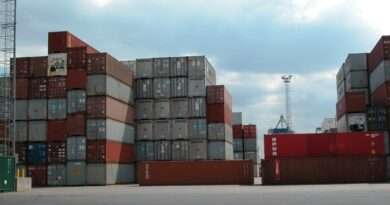Carpet Exporters Urge Tariff Relief to Save Industry
|
Getting your Trinity Audio player ready...
|
The Pakistan Carpet Manufacturers and Exporters Association (PCMEA) has made an urgent appeal to Federal Minister for Commerce, Jam Kamal Khan, seeking relief from customs tariffs that are threatening the survival of the carpet manufacturing sector. The call for support underscores the critical challenges faced by the industry, which is a significant contributor to Pakistan’s export economy.
The Appeal for Tariff Relief
The Delegation’s Plea
In a recent meeting, a delegation led by Patron-in-Chief Abdul Latif Malik, Senior Vice Chairman Usman Ashraf, and Vice Chairman Riaz Ahmed, highlighted the pressing issues crippling the carpet industry. They emphasized the urgent need for government intervention to provide tariff relief and support the sector’s sustainability.
The Complex Production Process
Abdul Latif Malik elaborated on the intricate production process of Pakistani carpets. The process involves sending raw materials to Afghanistan, where initial stages of production take place. The semi-finished carpets are then brought back to Pakistan for final processing before being exported globally. Despite 99% of these carpets being destined for international markets, manufacturers are unable to benefit from Federal Board of Revenue (FBR) customs duty exemptions, which are critical for maintaining their competitive edge.
Challenges Faced by the Industry
High Customs Duties
One of the primary challenges highlighted by the PCMEA is the high customs duties at the Afghan-Torkham border. These duties are significantly impacting small and medium-sized enterprises (SMEs), forcing many to shut down. “To save this sector and ensure its growth, it is essential to make semi-finished carpets duty-free,” Malik urged. The call for government support is seen as vital to sustain the industry and protect jobs.
Lack of Export Incentives
The lack of access to export incentives due to customs duties is depriving the industry of critical financial support. This situation is exacerbating the difficulties faced by manufacturers, particularly those operating on a smaller scale.
Government Response and Commitment
Minister’s Assurance
In response to the delegation’s plea, Minister Jam Kamal Khan assured his commitment to addressing the industry’s concerns. He acknowledged the sector’s potential to enhance exports and emphasized the importance of promoting “Made in Pakistan” products.
Intellectual Property Challenges
The minister also highlighted the need to address intellectual property challenges, such as securing patent protections for Pakistani carpets. This step is seen as crucial for boosting global recognition and ensuring the unique designs and quality of Pakistani carpets are safeguarded.
Proposed Meeting with Stakeholders
To find viable solutions, Khan proposed convening a meeting with the FBR and other stakeholders in the near future. This meeting aims to explore solutions collaboratively and address the sector’s concerns comprehensively. The minister reiterated his dedication to fostering the growth of the carpet manufacturing industry and helping SMEs thrive.
The Future of the Carpet Industry
Potential for Growth
With the right support and interventions, the Pakistani carpet industry has significant potential for growth. The sector’s ability to enhance exports and contribute to the national economy is substantial. Ensuring the industry’s sustainability will require concerted efforts from the government, industry stakeholders, and international partners.
Ensuring Competitive Edge
Providing tariff relief and addressing customs duty issues will be crucial in restoring the competitive edge of Pakistani carpets in international markets. This support will help manufacturers reduce costs, increase profitability, and invest in innovation and quality improvements.
Intellectual Property and Global Recognition
Securing intellectual property protections and promoting the unique qualities of Pakistani carpets on the global stage will be essential. These steps will help build a strong brand identity and ensure that Pakistani carpets are recognized and valued for their craftsmanship and design.
Conclusion
The appeal for tariff relief by the PCMEA highlights the urgent need for government intervention to support the carpet manufacturing industry in Pakistan. By addressing the challenges of high customs duties, lack of export incentives, and intellectual property issues, the government can help ensure the industry’s sustainability and growth. The commitment shown by Minister Jam Kamal Khan and the proposed collaborative approach with stakeholders offer hope for a brighter future for the Pakistani carpet industry.
FAQs
- What are the main challenges faced by the Pakistani carpet industry? The main challenges include high customs duties, lack of export incentives, and intellectual property issues.
- Why is tariff relief important for the carpet industry? Tariff relief is crucial to reduce costs for manufacturers, help SMEs survive, and maintain the industry’s competitive edge in international markets.
- How can the government support the carpet industry? The government can support the industry by providing tariff relief, securing export incentives, addressing intellectual property challenges, and promoting “Made in Pakistan” products.
- What is the role of the Federal Board of Revenue (FBR) in this issue? The FBR plays a key role in providing customs duty exemptions and ensuring that export incentives are accessible to manufacturers.
- What steps are being proposed to address the industry’s concerns? Proposed steps include convening a meeting with the FBR and stakeholders, providing tariff relief, securing intellectual property protections, and promoting the unique qualities of Pakistani carpets globally




